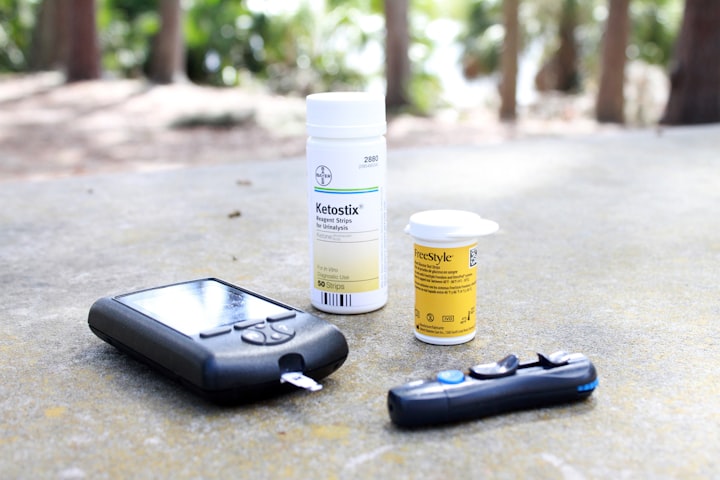
When your child is diagnosed with diabetes, it can often come as a shock. If your child has been diagnosed with type 1 or 2 diabetes, you may feel shocked, sad, or even anger or guilty at first - these are completely normal feelings. Children look to their parents for advice, so how you manage diabetes can affect how your child talks to you about it. Emotions and behaviors can affect how you and your child manage diabetes.
Medications Insulin is the only medicine that can treat type 1 diabetes, and your child is likely to take more than one type of insulin. Children with type 2 diabetes may be prescribed medications, such as metformin, which reduces the amount of blood sugar released by the liver, or liraglutide, which causes the pancreas to release more insulin after meals.
If your child or teenager is diagnosed with type 1 diabetes, the next step is to develop a diabetes management plan to help them stay healthy and active. The main goal of treating children with type 1 diabetes is to maintain normal growth and development, control blood sugar levels within the target range (to be determined after consulting a doctor), and promote emotional health. Controlling blood sugar levels helps children with diabetes feel good, grow and develop normally, and reduce the risk of long-term complications of diabetes.
Your diabetes care plan will recommend how many blood glucose checks each day. This is the only way to monitor the effectiveness of your child's insulin plan. Analyze blood sugar levels. If your child is 10 years old, your child’s doctor may perform a cholesterol (low-density lipoprotein and high-density lipoprotein) test as soon as he diagnoses type 1 diabetes or has blood sugar under control. They can also use simple chemically treated test strips and blood glucose meters to check their blood sugar several times a day.
They will also provide instructions to help you and your child respond to any diabetes issues that may arise during exercises, such as hypoglycemia (low blood sugar) or hyperglycemia (high blood sugar). Fortunately, there are ways to prepare for diabetes management in school this new school year. One of the most important things parents can do to make it easier for them to get back to school is to come up with a diabetes care plan.
If your child’s school or doctor does not have its own form, the American Diabetes Association will provide a form that you can use as a template and make changes to your child’s needs. It is recommended that you consult with your child's diabetes care team, even if your child is returning to the same school, to ensure that the information about the diabetes management plan is accurate and up-to-date in the past few years. The American Diabetes Association provides diabetes education courses for school staff, and parents can help. The training includes information videos, tips from school nurses, and answers to frequently asked questions about diabetes and school officials.
The key to making yourself more comfortable with diabetes is learning everything you can about how to care for your baby. Send your child to a diabetes camp where you can take a break while still learning all about self-care.
Involve all family members in meal planning and other activities so that your child does not feel lonely in the fight against diabetes. As your child becomes more independent, you can help them learn to take more responsibility for their diabetes.
Developing good diabetes management habits in young children can significantly affect their diabetes management habits when they grow up. Parents and other caregivers can guide their children to develop lifestyle habits to maintain good health in the coming years. Family members, daycare centers, babysitters, or friends can affect your child's health habits.
As you learn more about how to improve your health, take time to talk to your children about how certain foods or physical activities can help them. Also, discuss how to get your child to take charge of diabetes and make it easier to attend fun activities such as parties and sleepovers.
If you have someone who can take care of your child with diabetes, then making time for yourself and other children is a good way to make them feel important. You will find someone to help you take care of your child overnight, and your child will grow up to be able to take care of himself.
Your child will not be held back by diabetes; life simply requires special care and planning. If your child has been diagnosed with this condition, you can take steps to manage it so your little one can live a fulfilling and healthy life. Although diabetes is a lifelong disease that requires ongoing care and treatment, it is a treatable condition and there is support to help ensure that your child stays healthy for life.
The diabetes healthcare team can help you deal with any problems your child may have with meal plans and insulin injections. To help, try getting your blood glucose tested and giving your baby insulin as part of your daily routine, such as when changing diapers or while sleeping. Your child may be assigned a diabetes care team that includes a doctor, nutritionist, and diabetes educator who will work closely with you to keep your child's blood sugar as normal as possible.
By starting to monitor blood sugar closely as soon as possible after being diagnosed with diabetes, your child is more likely to avoid diabetes complications later in life. The best way to help children with type 1 diabetes live a long and healthy life is to keep their blood sugar levels within the target range. It is important to maintain blood sugar levels within a normal low range to reduce the risk of long-term health problems associated with poor diabetes control. However, if your child can check their blood sugar every day, this will help prevent future problems.





Comments
There are no comments for this story
Be the first to respond and start the conversation.